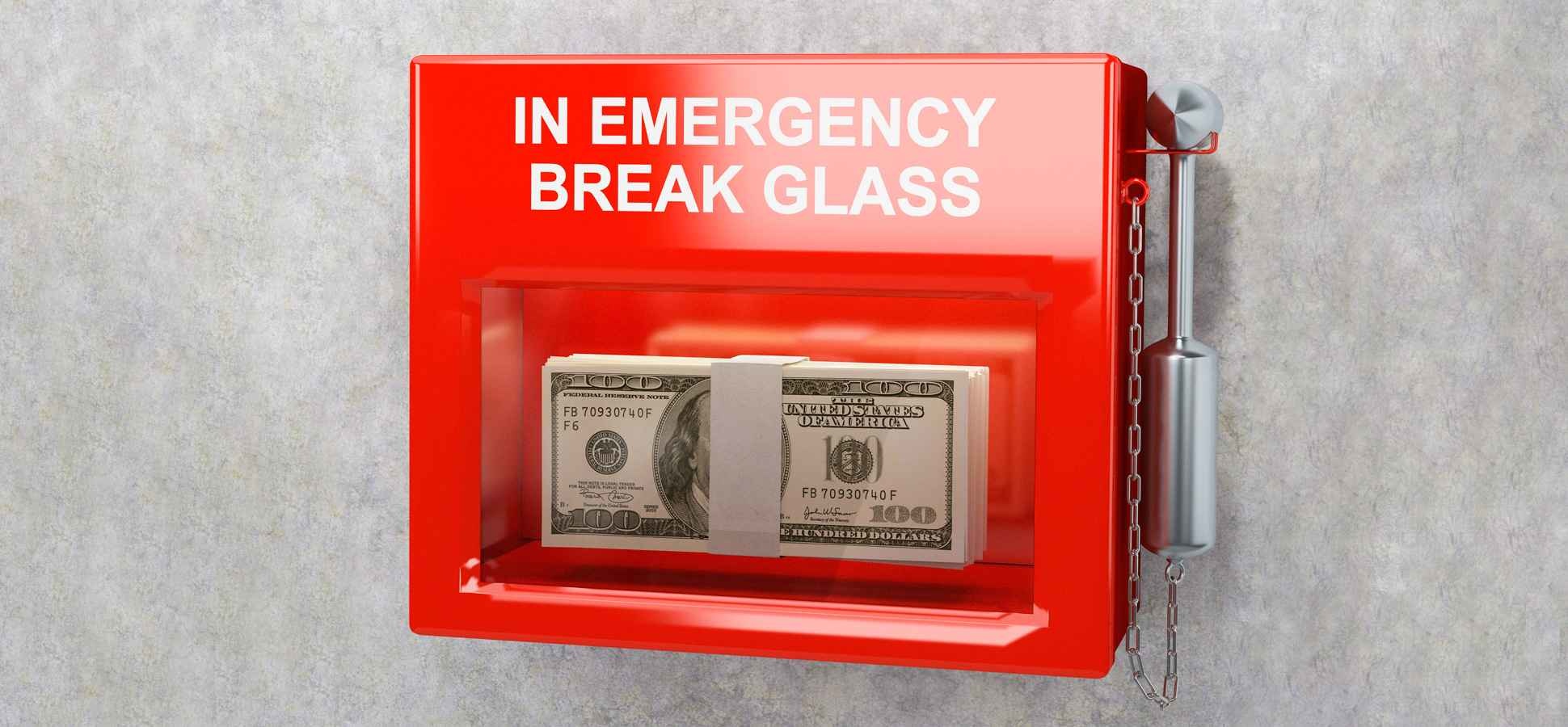Ever woken up with last night’s makeup still on, an uneaten slice of pizza on the bedside table, a jackhammer in your head, and an account balance that only adds to your already rising nausea? Ever spend way too much on take-out because you’re just too exhausted from your job—that doesn’t pay you nearly enough for your long hours—to cook? Or maybe, tired of the unhealthy work/life balance your company offers instead of benefits, you spontaneously booked a plane ticket to some Instagram worthy island, and decided you’d figure out the money part later, after all, everyone on Instagram seems to be on vacation. We get it, and we don’t blame you.
[shortcode-1-In-Article-Banner-728×60]
Being a young professional in 2019 means a whole host of challenges your parents never had to worry about. Between the toxic culture of non-stop productivity, mounting student loan debt, the tendency many companies have to take advantage of millenials, and the way social media forces you to compare yourself to your peers; it can feel like getting ahead financially is a losing game. And when that non-stop stress builds to a breaking point, it’s understandable that you may start to let financial best practices fall to the wayside in order to stay sane. Your mom is going to tell you the same thing over and over: budget, don’t go drinking, eat at home etc. and while that’s all good advice, the truth of the matter is your life isn’t simple and the world is changing around you all the time. With the specific struggles of the average millenial in mind, here are our top financial tips for people just starting out in, what baby boomers would call, “the real world.”
Take a Course

We know, this is adding another expense to your already tight budget, but we promise if you can find the money for an online course in basic finances or economics, it’s worth doing. It’s absurd that people are just suddenly expected to emerge from college fully equipped to handle things like taxes, budgeting, and investing, when just a month before they were eating ramen in a dorm room doing homework for a class called “the post-modern implications of beekeeping.” There are even some free options out there.
Find a Cheaper Apartment

We know, sometimes this just isn’t an option, but be honest with yourself, how hard did you look for a more affordable apartment? Or did you just make whatever work so you didn’t have to think too hard about it? In many cities, there are options for rent controlled apartments, and even housing lotteries to help you take your money farther. As a good rule, housing should be 30% of your income. If it isn’t, or that just isn’t a possibility for you right now, think about how you can cut down on costs of living. Could you get another roommate? These kind of savings are ideal, because they don’t require will power to maintain the way so many financial tips do.
Take Risks

Yes, we know this sounds counterintuitive, but there is something to be said for making investment decisions that don’t exactly feel safe. Millenials have been told their whole lives to be careful with money and to work hard to hang on to material security, but the problem with playing it safe is you’re very unlikely to see any returns. Investigate the options you have for your savings, and don’t be afraid to make minor mistakes, afterall, there is no better way to learn.
Don’t Depend on Your Credit Cards

A classic mode of budgeting back in the day was to get all your monthly spending money for the month in cash, divide it up into envelopes (groceries, eating out, drinks, entertainment etc.) and then if the money in the envelope runs out before the end of the month, well, that’s that. Most millennials rarely carry cash, but maybe it’s time to consider going old school. If you take a certain amount of money out of your “going out” envelope before a night at the bar, you’re much less likely to get carried away than you would be with a debit card on an open tab. Once the cash is gone, you know your budget for that particular area of your life is used up, and you’re less likely to accidentally overspend.
Pay into an Emergency Fund

Many millenials report having very little back up plan were they to suddenly lose their job or suddenly need a significant amount of money. To avoid this situation, follow the age old rule: pay yourself first. That means pay into your savings every paycheck, even if it’s just a small amount. Most importantly, this practice creates good habits of saving, and you’ll begin to understand the satisfaction that comes with watching a savings account grow.
string(5721) "
Ever woken up with last night's makeup still on, an uneaten slice of pizza on the bedside table, a jackhammer in your head, and an account balance that only adds to your already rising nausea? Ever spend way too much on take-out because you're just too exhausted from your job—that doesn't pay you nearly enough for your long hours—to cook? Or maybe, tired of the unhealthy work/life balance your company offers instead of benefits, you spontaneously booked a plane ticket to some Instagram worthy island, and decided you'd figure out the money part later, after all, everyone on Instagram seems to be on vacation. We get it, and we don't blame you.
[shortcode-1-In-Article-Banner-728x60]
Being a young professional in 2019 means a whole host of challenges your parents never had to worry about. Between the toxic culture of non-stop productivity, mounting student loan debt, the tendency many companies have to take advantage of millenials, and the way social media forces you to compare yourself to your peers; it can feel like getting ahead financially is a losing game. And when that non-stop stress builds to a breaking point, it's understandable that you may start to let financial best practices fall to the wayside in order to stay sane. Your mom is going to tell you the same thing over and over: budget, don't go drinking, eat at home etc. and while that's all good advice, the truth of the matter is your life isn't simple and the world is changing around you all the time. With the specific struggles of the average millenial in mind, here are our top financial tips for people just starting out in, what baby boomers would call, "the real world."
Take a Course

We know, this is adding another expense to your already tight budget, but we promise if you can find the money for an online course in basic finances or economics, it's worth doing. It's absurd that people are just suddenly expected to emerge from college fully equipped to handle things like taxes, budgeting, and investing, when just a month before they were eating ramen in a dorm room doing homework for a class called "the post-modern implications of beekeeping." There are even some free options out there.
Find a Cheaper Apartment

We know, sometimes this just isn't an option, but be honest with yourself, how hard did you look for a more affordable apartment? Or did you just make whatever work so you didn't have to think too hard about it? In many cities, there are options for rent controlled apartments, and even housing lotteries to help you take your money farther. As a good rule, housing should be 30% of your income. If it isn't, or that just isn't a possibility for you right now, think about how you can cut down on costs of living. Could you get another roommate? These kind of savings are ideal, because they don't require will power to maintain the way so many financial tips do.
Take Risks

Yes, we know this sounds counterintuitive, but there is something to be said for making investment decisions that don't exactly feel safe. Millenials have been told their whole lives to be careful with money and to work hard to hang on to material security, but the problem with playing it safe is you're very unlikely to see any returns. Investigate the options you have for your savings, and don't be afraid to make minor mistakes, afterall, there is no better way to learn.
Don't Depend on Your Credit Cards

A classic mode of budgeting back in the day was to get all your monthly spending money for the month in cash, divide it up into envelopes (groceries, eating out, drinks, entertainment etc.) and then if the money in the envelope runs out before the end of the month, well, that's that. Most millennials rarely carry cash, but maybe it's time to consider going old school. If you take a certain amount of money out of your "going out" envelope before a night at the bar, you're much less likely to get carried away than you would be with a debit card on an open tab. Once the cash is gone, you know your budget for that particular area of your life is used up, and you're less likely to accidentally overspend.
Pay into an Emergency Fund

Many millenials report having very little back up plan were they to suddenly lose their job or suddenly need a significant amount of money. To avoid this situation, follow the age old rule: pay yourself first. That means pay into your savings every paycheck, even if it's just a small amount. Most importantly, this practice creates good habits of saving, and you'll begin to understand the satisfaction that comes with watching a savings account grow.
"

















